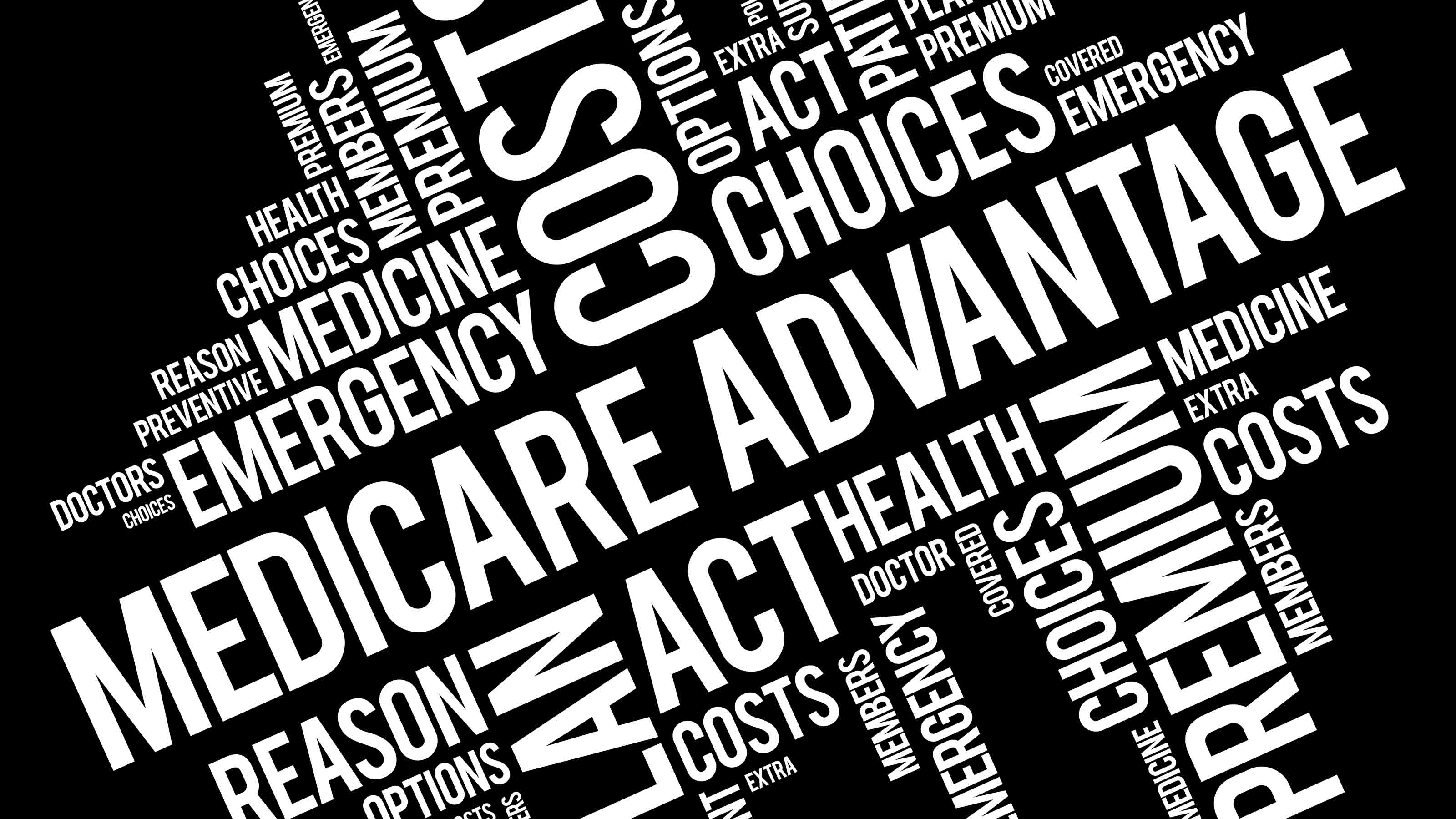What You'll Pay for Medicare Premiums in 2019
A new surcharge tier will kick in for 2019 for people with the highest incomes.

Profit and prosper with the best of Kiplinger's advice on investing, taxes, retirement, personal finance and much more. Delivered daily. Enter your email in the box and click Sign Me Up.
You are now subscribed
Your newsletter sign-up was successful
Want to add more newsletters?

Delivered daily
Kiplinger Today
Profit and prosper with the best of Kiplinger's advice on investing, taxes, retirement, personal finance and much more delivered daily. Smart money moves start here.

Sent five days a week
Kiplinger A Step Ahead
Get practical help to make better financial decisions in your everyday life, from spending to savings on top deals.

Delivered daily
Kiplinger Closing Bell
Get today's biggest financial and investing headlines delivered to your inbox every day the U.S. stock market is open.

Sent twice a week
Kiplinger Adviser Intel
Financial pros across the country share best practices and fresh tactics to preserve and grow your wealth.

Delivered weekly
Kiplinger Tax Tips
Trim your federal and state tax bills with practical tax-planning and tax-cutting strategies.

Sent twice a week
Kiplinger Retirement Tips
Your twice-a-week guide to planning and enjoying a financially secure and richly rewarding retirement

Sent bimonthly.
Kiplinger Adviser Angle
Insights for advisers, wealth managers and other financial professionals.

Sent twice a week
Kiplinger Investing Weekly
Your twice-a-week roundup of promising stocks, funds, companies and industries you should consider, ones you should avoid, and why.

Sent weekly for six weeks
Kiplinger Invest for Retirement
Your step-by-step six-part series on how to invest for retirement, from devising a successful strategy to exactly which investments to choose.
Question: How much will I pay for Medicare Part B in 2019?
Answer: The Centers for Medicare & Medicaid Services announced that most people will pay $135.50 per month for Medicare Part B in 2019, up slightly from $134 per month in 2018.
A small group of Medicare beneficiaries (about 3.5%) will pay less because the cost-of-living increase in their Social Security benefits is not large enough to cover the full premium increase. The “hold-harmless provision” prevents enrollees’ annual increase in Medicare premiums from exceeding their cost-of-living increase in Social Security benefits if their premiums are automatically deducted from their Social Security payments. Social Security benefits are increasing by 2.8% in 2019, which will cover the increase in premiums for most people.
From just $107.88 $24.99 for Kiplinger Personal Finance
Become a smarter, better informed investor. Subscribe from just $107.88 $24.99, plus get up to 4 Special Issues

Sign up for Kiplinger’s Free Newsletters
Profit and prosper with the best of expert advice on investing, taxes, retirement, personal finance and more - straight to your e-mail.
Profit and prosper with the best of expert advice - straight to your e-mail.
Premium increases are also minor for most higher-income beneficiaries—those with adjusted gross income plus tax-exempt interest income of more than $85,000 if single or $170,000 if married filing jointly. These beneficiaries already pay a high-income surcharge, but a new surcharge tier will kick in for 2019 for people with the highest incomes. Overall, monthly premiums for higher-income beneficiaries will range from $189.60 to $460.50 per person, depending on income.
If your income is $85,001 to $107,000 (or $170,001 to $214,000 if filing jointly), your monthly premium will rise from $187.50 to $189.60. Monthly premiums for singles with an income of $107,001 to $133,500 (joint filers with income of $214,001 to $267,000) will increase from $267.90 to $270.90. And premiums for singles earning $133,501 to $160,000 ($267,001 to $320,000 for joint filers) will rise from $348.30 to $352.20.
If you had higher income than that, your monthly premium for 2018 was $428.60. In 2019, there will be an extra surcharge tier for people with the highest income.
If your income is between $160,001 and $499,999 ($320,001 to $749,999 for joint filers), you’ll pay $433.40 per month. Single filers with income of $500,000 or more ($750,000 or more for joint filers) will pay $460.50 per month.
High-income surcharges for 2019 are generally based on your 2017 income. If you’ve experienced certain life-changing events that have reduced your income since then, such as retirement, divorce or the death of a spouse, you can contest the surcharge. For more information about contesting or reducing the high-income surcharge, see Save Money on Medicare. Also see Medicare Premiums: Rules for Higher-Income Beneficiaries for the procedure.
Deductibles will also go up in 2019. The deductible for Medicare Part A, which covers hospital services, will increase from $1,340 in 2018 to $1,364 in 2019.
The deductible for Medicare Part B, which covers physician services and other outpatient services, will see a mild bump from $183 to $185.
What You'll Pay for Medicare in 2019
| Income (adjusted gross income plus tax-exempt interest income): | ||
|---|---|---|
| Single tax return | Married filing jointly | Monthly Part B premium (per person) |
| $85,000 or less | $170,000 or less | $135.50 (may be less if covered by the hold-harmless provision) |
| $85,001 to $107,000 | $170,001 to $214,000 | $189.60 |
| $107,001 to $133,500 | $214,001 to $267,000 | $270.90 |
| $133,501 to $160,000 | $267,001 to $320,000 | $352.20 |
| $160,001 to $499,999 | $320,001 to $749,999 | $433.40 |
| $500,000 or more | $750,000 or more | $460.50 |
Profit and prosper with the best of Kiplinger's advice on investing, taxes, retirement, personal finance and much more. Delivered daily. Enter your email in the box and click Sign Me Up.

As the "Ask Kim" columnist for Kiplinger's Personal Finance, Lankford receives hundreds of personal finance questions from readers every month. She is the author of Rescue Your Financial Life (McGraw-Hill, 2003), The Insurance Maze: How You Can Save Money on Insurance -- and Still Get the Coverage You Need (Kaplan, 2006), Kiplinger's Ask Kim for Money Smart Solutions (Kaplan, 2007) and The Kiplinger/BBB Personal Finance Guide for Military Families. She is frequently featured as a financial expert on television and radio, including NBC's Today Show, CNN, CNBC and National Public Radio.
-
 Quiz: Do You Know How to Avoid the "Medigap Trap?"
Quiz: Do You Know How to Avoid the "Medigap Trap?"Quiz Test your basic knowledge of the "Medigap Trap" in our quick quiz.
-
 5 Top Tax-Efficient Mutual Funds for Smarter Investing
5 Top Tax-Efficient Mutual Funds for Smarter InvestingMutual funds are many things, but "tax-friendly" usually isn't one of them. These are the exceptions.
-
 AI Sparks Existential Crisis for Software Stocks
AI Sparks Existential Crisis for Software StocksThe Kiplinger Letter Fears that SaaS subscription software could be rendered obsolete by artificial intelligence make investors jittery.
-
 Mom Needs a Nursing Home. Should I Spend Down Her Assets So She Qualifies for Medicaid?
Mom Needs a Nursing Home. Should I Spend Down Her Assets So She Qualifies for Medicaid?We asked expert financial advisers for their advice.
-
 Trump’s Tax Cut Risks Your SNAP, Medicaid Benefits
Trump’s Tax Cut Risks Your SNAP, Medicaid BenefitsTax Cuts The GOP budget blueprint could slash lifesaving programs for millions of U.S. households.
-
 Medicaid Managed Care Groups Under Congressional Investigation
Medicaid Managed Care Groups Under Congressional InvestigationLawmakers question Medicaid MCOs over their high rates of prior authorization denials.
-
 Considering a Medicare Advantage Plan? Be Wary of Promises
Considering a Medicare Advantage Plan? Be Wary of PromisesThese private insurance alternatives to Medicare are growing in popularity at the same time they’re under scrutiny for their sales tactics and coverage.
-
 Medicare Costs to Go Down in 2023
Medicare Costs to Go Down in 2023Retirement Lower-than-expected spending on an expensive drug and other things means beneficiaries will pay less next year.
-
 Create a Special Needs Plan That Goes the Distance
Create a Special Needs Plan That Goes the Distanceestate planning Getting the services needed for a person with a disability can take some careful planning, considering some important benefits programs limit the assets owned to just $2,000.
-
 Age Magnificently with the Help of a Geriatric Care Manager
Age Magnificently with the Help of a Geriatric Care Managerretirement Geriatric care managers help families map the coming changes and explore the options before they are even needed.
-
 Shingles Vaccines Work. But Medicare Won’t Always Cover Them.
Shingles Vaccines Work. But Medicare Won’t Always Cover Them.Medicare Traditional Medicare Part B does not cover some recommended vaccines, including shingles shots; prescription drug plans include commercially available vaccinations, but are likely to require some payments from beneficiaries.